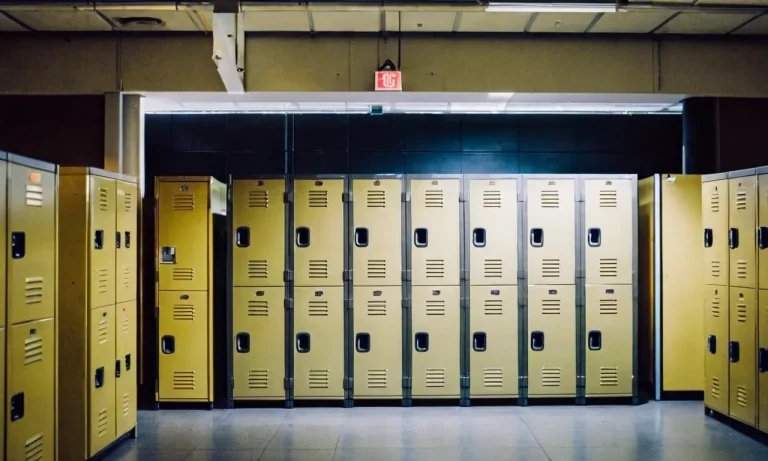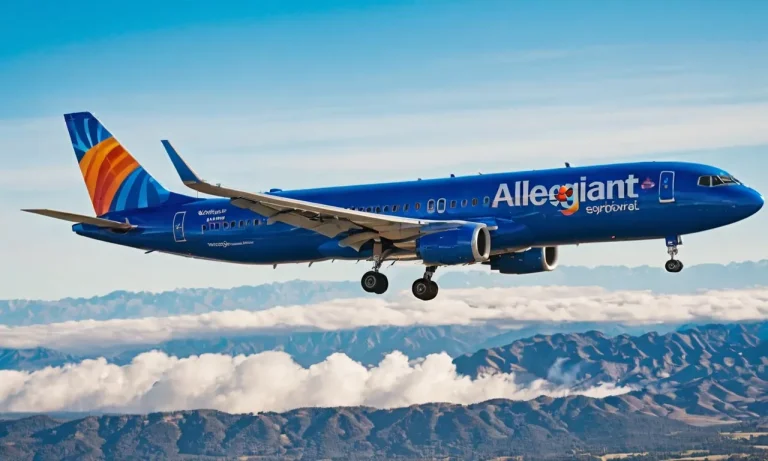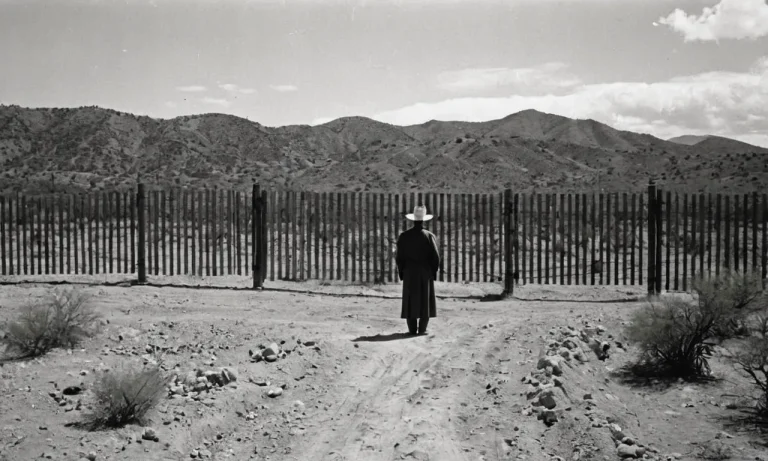What Happens If You Don’T Tip In New York?
Not tipping in New York can lead to poor service, dirty looks, and even confrontation from servers and other staff who rely on tips to make a living wage. However, legally there is no requirement to tip.
If you’re short on time, here’s a quick answer: While tipping is expected and the norm in New York, there are no legal repercussions for not tipping. However, failing to tip can result in bad service, verbal confrontations, and general hostility from servers and staff.
Tipping Culture and Expectations in New York
Tipping is a standard practice in New York, as it is in most parts of the United States. In New York City, it is customary to leave a gratuity for various services, including restaurants, bars, taxis, hairdressers, hotel staff, and more.
Tipping is seen as a way to show appreciation for good service and is expected by those working in the service industry.
Tips Make Up Bulk of Server Wages
It is important to understand that in many service industries, the wages of the workers are often supplemented by tips. This is particularly true for restaurant servers. The base pay for servers in New York is generally lower than the minimum wage, with the expectation that tips will make up the difference.
Therefore, not tipping can significantly impact the income of these workers, who rely on tips to make a living.
According to the U.S. Bureau of Labor Statistics, the median hourly wage for waiters and waitresses in the United States is around $11.42 per hour, including tips. Without tips, the hourly wage would be significantly lower.
It is worth noting that the minimum wage for tipped workers in New York City is $10.00 per hour, compared to the standard minimum wage of $15.00 per hour.
Typical Tip Amounts
The customary tip amount in New York City is generally around 15% to 20% of the total bill before tax. However, it is important to note that tipping practices can vary depending on the type of service provided. Here are some typical tipping scenarios:
- Restaurant Servers: 15% to 20% of the total bill
- Bartenders: $1 to $2 per drink or 15% to 20% of the total tab
- Taxi Drivers: 15% to 20% of the fare
- Hotel Staff: $2 to $5 per day for housekeeping, $1 to $2 per bag for bellhops
It is important to remember that tipping is discretionary, and you are not obligated to leave a tip if you receive poor service. However, it is always a good practice to communicate any concerns with the establishment or staff before deciding not to leave a tip.
For more information on tipping practices and guidelines in New York City, you can visit the official website of the New York State Department of Labor: https://labor.ny.gov.
Consequences of Not Tipping in New York Restaurants
When dining out in New York, tipping is not just a suggestion, it’s an essential part of the dining experience. Not tipping can have several consequences that can affect both the diner and the server.
Poor Service on Future Visits
One of the consequences of not tipping in New York restaurants is the potential for receiving poor service on future visits. Servers rely heavily on tips as a significant portion of their income. If they feel that their efforts are not being appreciated, they may provide subpar service to those who have failed to tip in the past.
This can include slower service, neglecting food preferences, or even outright rudeness.
Verbal Confrontation
Another consequence of not tipping in New York restaurants is the possibility of a verbal confrontation. While it is never ideal for a situation to escalate to this level, it is not uncommon for a server to express their dissatisfaction with a customer who did not leave a tip.
This can lead to an uncomfortable and potentially confrontational interaction between the diner and the server. It is always best to avoid this kind of situation by adhering to customary tipping practices.
Servers Paying Out of Pocket
One lesser-known consequence of not tipping in New York restaurants is that servers may end up paying out of pocket for the privilege of serving you. In many establishments, servers are required to share their tips with other staff members, such as bartenders and bussers.
When a customer fails to tip, the server still needs to pay these individuals their share, which means they are effectively losing money by serving that particular table. This can be a significant financial burden for servers, especially if it happens frequently.
Legal Implications and Risks
No Legal Obligation to Tip
In New York, there is no legal obligation for customers to tip. Unlike some other states where tipping is considered mandatory, New York does not have any specific laws that require customers to leave a tip for their service.
It is ultimately up to the customer’s discretion whether or not they want to tip.
However, it is important to note that tipping is customary in many service industries, such as restaurants, bars, and hotels. It is considered a way to show appreciation for good service and is part of the overall compensation for tipped employees.
According to a survey conducted by the National Restaurant Association, around 63% of Americans believe that tipping is an important part of the dining experience. So while there may not be a legal obligation to tip, it is still widely expected and failing to tip may have consequences.
Illegal for Staff to Demand Tips
While tipping is customary, it is important to know that it is illegal for staff to demand tips in New York. The New York State Department of Labor explicitly states that employers cannot require or coerce customers to give tips to their employees.
In fact, under the New York Labor Law, employers who violate this rule can face penalties and fines. This means that if you ever encounter a situation where a staff member is demanding a tip or making you feel obligated to tip, you have the right to refuse and report the incident to the appropriate authorities.
It is worth mentioning that if you receive exceptional service and want to show your appreciation, tipping is still the most common way to do so. However, it should always be voluntary and based on your own judgment.
For more information on tipping etiquette and your rights as a customer, you can visit the official website of the New York State Department of Labor at www.labor.ny.gov.
Alternatives to Not Tipping
Talk to Manager Discretely
If you find yourself in a situation where you’re unable to leave a tip, consider speaking to the manager discreetly. Explain your situation politely and ask if there’s anything they can do to help. While it’s not guaranteed, some managers may be understanding and might be able to provide a solution or make an exception.
It’s important to be respectful and understanding when having this conversation, as it’s ultimately the establishment’s policy to enforce tipping.
Tip What You Can Afford
If you’re on a tight budget or simply can’t afford to leave a standard tip, it’s still important to show your appreciation for the service received. Even leaving a smaller tip is better than nothing at all.
Consider leaving a percentage of what you can afford or a flat amount that is reasonable for your circumstances. Remember, tipping is a way to acknowledge the hard work and effort put in by the service staff, and even a small gesture can go a long way.
Avoid Sit-Down Restaurants
If you’re concerned about the pressure of tipping, one alternative is to avoid sit-down restaurants altogether. Instead, opt for establishments where tipping is not expected, such as fast-food chains or self-service cafes.
This way, you can enjoy a meal without the added stress of calculating and leaving a tip. However, it’s important to note that tipping is customary in many service industries, so it’s always good to be prepared for potential tipping situations.
The Future of Tipping
Tipping has long been a customary practice in the United States, with many people considering it an essential part of the service industry. However, the future of tipping is facing some significant changes, particularly in cities like New York.
In this article, we will explore the potential consequences of not tipping in the Big Apple.
Some Restaurants Moving to No-Tip Models
One of the most notable trends in the restaurant industry is the shift towards a no-tip model. In these establishments, the service charge is included in the menu prices, eliminating the need for customers to leave additional gratuities.
This approach aims to provide a fair and consistent income for all staff members, including those in the kitchen and other non-tipped positions. Some restaurants have successfully implemented this model, while others are still experimenting with different approaches.
A popular example of a no-tip restaurant is Danny Meyer’s Union Square Hospitality Group, which implemented this policy across its establishments. The decision was based on the belief that a no-tip model would promote better teamwork among staff and ensure a more equitable distribution of earnings.
However, it is important to note that not all restaurants in New York have adopted this approach, and tipping is still customary in many establishments.
Calls to Raise Base Server Wages
As the debate around tipping continues, some advocates argue for increasing the minimum wage for servers and other tipped employees. The current federal minimum wage for tipped employees is significantly lower than the standard minimum wage, with the expectation that tips will make up the difference.
However, this can lead to income instability and inequality among service workers.
Advocates for raising base server wages argue that a higher minimum wage would provide a more reliable income for workers and reduce the reliance on tips. This approach has gained traction in some states, with New York being at the forefront of these discussions.
In fact, in recent years, New York has gradually increased the minimum wage for tipped employees, aiming to address income disparities and create a more sustainable system for service workers.
Customary Tip Amounts Could Rise
With the potential changes to the tipping landscape, there is a possibility that customary tip amounts could increase. If restaurants move to a no-tip model or if base server wages are raised, customers may feel compelled to leave larger tips to ensure that the staff is adequately compensated.
This could lead to a shift in the perception of what is considered a standard or acceptable tip.
It is worth noting that tipping practices can vary based on the type of establishment and the level of service received. While the customary tip amount in New York is generally around 15% to 20% of the total bill, some high-end restaurants may expect higher gratuities.
It is always advisable to check the restaurant’s policies or consult with the staff if you have any doubts about the appropriate tip amount.
Conclusion
While there are no legal requirements to tip in New York, stiffing servers can have social consequences. With tipping an entrenched cultural practice and wait staff relying on tips to earn a living, failing to tip can be seen as rude and hurtful.
Rather than not tipping, consumers who cannot afford typical tip amounts can speak to managers, tip smaller amounts, or avoid full-service restaurants. And over the long term, raising base wages for tipped workers could reduce reliance on tips.








